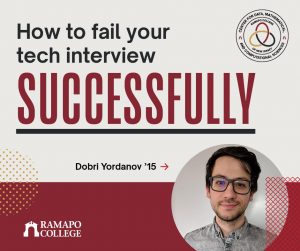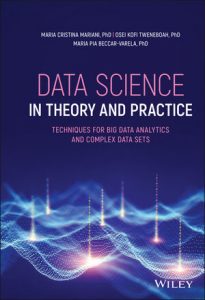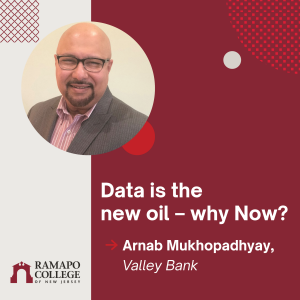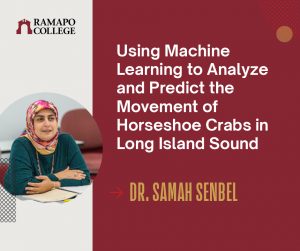- About Ramapo
- Academics
- Admissions & Aid
- Student Life
- Athletics
- Alumni
- Arts & Community
- Quick Links
- Apply
- Visit
- Give
Center for Data, Mathematical, and Computational Sciences
February 7, 2022How to fail your tech interview successfully

Feb 22nd at 6-7pm in ASB 332
Computer Science is hard. Being a Software Engineer is hard. Translating your computer science skills into a successful Software Engineer gig after college shouldn’t be hard. After interviewing close to 100 candidates at all levels for Google, Facebook and Manticore, Dobri Yordanov has a few tips and tricks to share, as well as pitfalls to avoid. Join us if you’d like to hear about them, be it out of curiosity or practicality. Everyone is welcome!
Biography: Dobri is a Ramapo College ’15 graduate, originally from Bulgaria. Since graduating, he’s built a career as a Software Engineer and a self-described Prototype Wizard in large tech working for Google and Facebook, and most recently landing in the game industry as a principal engineer at Manticore Games. As of ’21, you can occasionally catch him in Ramapo teaching some of our Computer Science classes. He likes long walks on the beach in VR and philosophical ponderings about the nature of our existence and ethics in technology. He will also absolutely listen to you about your favorite algorithm or design paradigm – he is 100% that kind of dork.
Categories: Lecture Series, Uncategorized
November 16, 2021Data is the new OIL - Slides and Thank you
Thank Arnab Mukhopadhyay for his insightful overview of how corporations view data, and how that view has evolved. In case you missed it, take a Data is the new OIL from the presentation.
Categories: Data Science, MSDS
November 3, 2021Data Science in Theory and Practice: Techniques for Big Data Analytics and Complex Data Sets

Congratulations to Ramapo’s Data Science Professor Osei Tweneboah. Dr. Tweneboah has co-authored the textbook Data Science in Theory and Practice: Techniques for Big Data Analytics and Complex Data Sets recently published by Wiley. This book is perfect for data practitioners, undergraduate and graduate students in Data Science, Business Analytics, and Statistics programs. It provides a comprehensive treatment of the mathematical and statistical models useful for analyzing data sets arising in various disciplines, like banking, finance, health care, bioinformatics, security, education, and social services.
Categories: Uncategorized
November 1, 2021Lecture Series: Data is the New Oil- Why Now?

Wednesday, November 10, 2021 at 5:00 PM until 6:00 PM – Eastern Standard Time
Ramapo College is proud to host a Graduate Lecture Series about a variety of interesting topics throughout the year.
During the RCNJ Lecture Series: Data is the New Oil- Why Now, you’ll have the opportunity to hear from Arnab Mukhopadhyay, Head of Enterprise Architecture at Valley Bank more about exploring a systemic or architecture-based viewpoint on exploring various aspects of data – ranging from an overview on data technologies, data integration, data analytics, data governance, and industry usage of data.
For more information about this particular topic, or questions about the event, please email Professor Scott Frees at sfrees@ramapo.edu and we will be happy to assist you.
You won’t want to miss this exciting and informative Graduate Lecture Series Event.
Categories: Lecture Series, Uncategorized
October 11, 2021Using Machine Learning to Analyze and Predict the Movement of Horseshoe Crabs in Long Island Sound - Recording
We want to thank Dr. Samah Senbel for the wonderful talk on using Machine Learning to analyze the movement of Horseshoe Craps in the Long Island Sounds. In case you missed it, her talk can be viewed here.
Categories: Uncategorized
August 27, 2021Using Machine Learning to Analyze and Predict the Movement of Horseshoe Crabs in Long Island Sound

Dr. Samah Senbel, Assistant Professor of Computer Science at Sacred Heart University will be describing her work on developing machine learning models to predict animal movement patterns. Please join us (virtually) on Monday, September 27th at 1pm to learn more about this important area of study in ecology, conservation and wildlife management.
Connection details will be provided after registration.
Abstract: Developing models to predict animal movement patterns is an important area of study in ecology, conservation and wildlife management. Models can be used to decipher patterns in mark-recapture data and machine learning can help to make predictions about future animal movement patterns. Project Limulus (PL), a community research program, has been tracking the movement of tagged individuals in the population of American horseshoe crabs (Limulus polyphemus) in Long Island Sound since 1997. During the spring spawning season, horseshoe crabs are captured by hand in spawning areas along the Connecticut (CT) shoreline, tagged and then released. Recaptured horseshoe crabs give valuable information about their behavior, if they exhibit site fidelity and movement patterns around the Sound. In this paper, we tested various models to find the best predictor for the movement of spawning horseshoe crabs to shorelines in the Sound based on the observed movement activity in previous years. The dataset consists of all the previous horseshoe crab movements: initial longitude and latitude, sex, initial date, and recapture longitude and latitude and recapture date. This dataset has 19,219 recapture records covering twenty years of activity. We experimented with three different models: Linear Regression, Decision Tree, and Random Forest Regression models. We used the data for 2018 as our test set and the data of all previous years as our training set. The Random Forest Regression model proved to be the best predictive model for animal movement and resulted in the smallest RMSE and MAE, as well as the smallest maximum error in prediction. The predicted horseshoe crab locations can be targeted in the next season for recapturing previously tagged horseshoe crabs, which provides valuable information about their movement patterns. It also concentrates the scientists’ effort and time to find the maximum number of horseshoe crabs.
This talk is supported by a grant from the Ramapo College Foundation.
Categories: Data Science, Lecture Series, MSDS
April 21, 2021MSDS Students at Scholars Week - College Football Recruiting Using Machine Learning Techniques
Colette Barca, Keith Osani, Nisha Srishan, and William “Brady” Wulster are inaugural members of the Master’s in Data Science program. During their MATH 570 Applied Statistics course with Professor Osei Tweneboah, they designed and completed a research project to predict high school football recruits’ college commitments using several Machine Learning techniques.
The four designed their project with the understanding that college football is big business. To create a winning team that will continue to generate revenue, Division I Football Bowl Subdivision (FBS) Power Five schools need to choose their recruits wisely. Recruits are selected
based on certain player attributes. Power Five schools are the most frequented schools by NFL scouts, making these schools highly desired by recruits. In this regard, Barca, Osani, Srishan, and Wulster built a model to predict whether a high school recruit will commit to a school in one of the Power Five Conferences. Such a model could allow a school to optimize its recruiting process, maximizing its return on investment. They used their dataset to fit several Machine Learning models. After completing the project, it was determined the Random Forest model produced the most accurate results. This model also revealed which particular attributes are indisputably the most important predictors of commitment to a Power Five school. This final model has the potential to be successfully used to improve the recruiting process.
Categories: Data Science, MSDS
January 21, 2021From Data Ethics to Data Justice: The Challenge of Building Better Worlds through Data Science
Dr. Andrea Pitts, Assistant Professor of Philosophy at the University of North Carolina, Charlotte will be describing this new new branch of study within applied ethics, a subfield in professional ethics that includes areas of research and practice such as computing ethics, media ethics, and biomedical ethics. This new branch of applied ethics responds, specifically, to novel applications and technologies for data storage, maintenance, and processing that add new layers to the study of morally relevant considerations within information ethics, business ethics, and AI ethics, for example.
Categories: Lecture Series, Uncategorized
August 22, 2020Convolutional Neural Networks for Face Recognition
We are happy to announce that Dr. Ausif Mahmood has rescheduled his talk on Convolutional Neural Networks this fall virtually.
Dr. Mahmood is the Director of The School of Engineering at the University of Bridgeport in Bridgeport, CT. His research areas involve Artificial Intelligence, Computer Vision, Machine Learning, and Deep Learning – bridging ties between Computer Science and Data Science.
Please join us virtually on September 17th at 1:00pm – 2:00pm. Registration is required, registrants will receive web conferencing information a few days prior to the event.
You’ll also have the opportunity to learn more about Ramapo’s new Data Science programs, launching this coming fall.
Categories: Uncategorized
August 6, 2020MSDS - Fall 2020 Course Delivery Update
As we look forward to the start of our Fall 2020 semester, we wanted to share with you our plans for course delivery starting in September.
As you hopefully know, Ramapo College is required to adhere with the State of New Jersey’s phased reopening plan. This plan identifies which activities and classes colleges and universities may conduct on campus, and the precautions we must take.
Based on current public health conditions as of August 3rd, NJ is currently still in Phase 2 – which prohibits on-campus meetings for all courses other than laboratory (i.e. biology labs) and studio (i.e. theatre) meetings. Regrettably, this means our MSDS courses will not meet on campus this coming semester, and will be conducted virtually.
As you know, MSDS had planned for all three of our Fall courses (DATA 601, MATH 570, and CMPS 530) to meet for approximately one hour each Thursday evening, with the rest of the course instruction asynchronous and online. Our virtual instruction format will be quite similar – each of the three MSDS courses will include synchronous WebEx (or Zoom) meetings on Thursday evenings, as scheduled. The individual instructors for each course will soon be in contact with you concerning the details for their particular course. Each of us have experience teaching in this format, and while we prefer us all to be on campus in the classroom, we are confident the mix of synchronous and asynchronous online instruction will be a success.
International Students: Please contact the Roukema Center, specifically Rajesh Adhikari (adhikar@ramapo.edu), to discuss your student visa status. There have been a number of USCIS delays due to the pandemic, along with specific federal policy changes concerning visa status for students in 100% online programs. Rajesh Adhikari can discuss your options with you.
Many of you have already received a bill for the Fall 2020 semester. There are three fees associated with these bills that require your attention:
Health Insurance Reminder: As indicated in a previous email, your bill will include healthcare insurance students may purchase through Ramapo. If you already have health insurance, you may opt out. Click here to opt out or email the Office of Student Accounts at studentaccts@ramapo.edu.
Parking Lab Fees: Since we will not have classes on campus, most of you will not utilize campus parking unless coming to campus for other reasons. If you do not intend on coming to campus, you may complete a waiver to avoid parking fees. Parking charges are NOT REMOVED from student accounts; they are offset by the credit of the waiver transaction. STUDENT ACCOUNTS WILL REFLECT BOTH THE CHARGE AND THE CREDIT.
Course Lab Fees: We are in the process of reviewing all courses across the campus to determine which courses will still have computer lab fees – due to their dependence on remote / cloud hosted software that the College maintains whether students are physically present or not. Lab Fees for courses that do not fit into this category will be credited to your account. In all likelihood, MSDS courses will not have a lab fee. Please be patient as we work through this process.
As a reminder to all, the Fall schedule can be found here. For those of you who have not yet registered for your courses, or have not set up your Ramapo College email, please take a look at Admissions’ guide for admitted students. To complete the MSDS in 2 years, we advise students to register for DATA 601, CMPS 530, and MATH 570 in the Fall semester. DATA 601 and CMPS 530 are of particular importance, as they are prerequisites for courses you will take in the Spring ‘21 semester.
Categories: Uncategorized
Copyright ©2025 Ramapo College Of New Jersey. Statements And Policies. Contact Webmaster.
